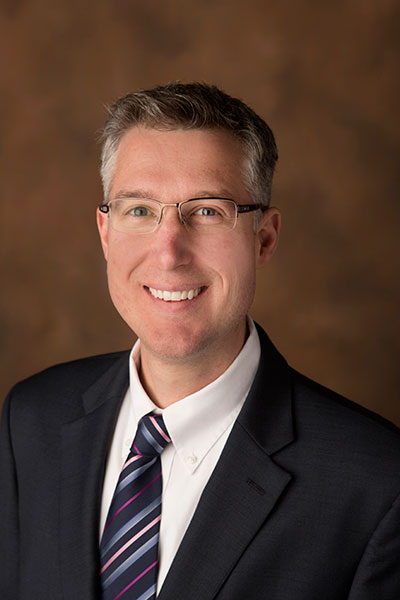Two VUMC clinics provide coordinated perioperative care, preventing complications and supporting patients
Two Vanderbilt University Medical Center (VUMC) care programs are helping patients recover quicker and with fewer complications and opioids following surgery. Enhanced Recovery After Surgery (ERAS) and the High-Risk Surgical Encounter (Hi-RiSE) Optimization Clinic are multidisciplinary programs that provide coordinated, multidisciplinary perioperative care.
Timothy Geiger, MD, MMHC, FACS, FASCRS, chief of the division of General Surgery and executive medical director of the Surgery Patient Care Center, says the ERAS program caused a “paradigm shift” in patient care when it launched in 2014.
Refer a Patient for ERAS or Hi-RiSE Optimization Clinic
To refer a patient for a surgical procedure at VUMC and recommend...
More communication, fewer complications
“We realized that we could deliver higher-quality care through communication and coordination throughout the perioperative care arc,” Geiger said. “And, we had an engaged anesthesia group that was willing to take this on.”
Geiger, along with his colleague, Matt McEvoy, MD, professor and vice-chair for education in the Department of Anesthesiology, created VUMC’s ERAS program to address two critical needs: improving perioperative communication and decreasing unnecessary variability. The ERAS protocols were initially developed for colorectal surgery patients by looking at all the care components within colorectal surgery, and matching them up with the latest evidence in perioperative care. A 2017 study showed that the ERAS pathways lowered complication rates across ACS NSQIP categories and led to a >1.5-day reduction in hospital stays.
ERAS protocols are also significantly reducing the use of opioids by relying on non-opioid multimodal post-op pain management.
Recently, Geiger operated on a 94-year-old patient with colon cancer who participated in the ERAS program. Following surgery, the patient stayed in the hospital just three days and was able to go straight home—not to a post-acute care facility. Patient stories like this are common.
As surgeons, we really want to operate to fix the problem as soon as we can,” Geiger said. “It is a cultural shift to say, ‘I’m going to hit the brakes, I’m going to let the patient get ready and then we’re going to the OR.’ But being able to get high-risk patients ready for surgery makes all the difference in the world.”
Since 2014, ERAS protocols have been implemented at VUMC in areas including surgical weight loss, urological surgery, plastic surgery, living donor nephrectomy, surgical oncology, gynecological surgery, abdominal wall reconstruction, spine surgery, and orthopaedic surgery.
Improving outcomes for high-risk patients
To address the needs of patients with an increased risk of developing complications, Geiger, McEvoy and their team also created the Hi-RiSE Optimization Clinic where interventions for high-risk patients can be coordinated weeks before surgery. The Hi-RiSE clinic brings together specialists from nursing, anesthesia, surgery, and Health IT to manage the patient’s care.
According to McEvoy, large academic medical centers are ideal environments for these types of interventional programs since multidisciplinary, collaborative clinical specialists are all under one roof.
“Our goal is to thread all those pieces together for people who have an unexpected diagnosis that’s changing their world,” McEvoy said.
Addressing concerns before surgery provides undeniable health benefits for surgical patients, and there is also a large financial incentive for both the medical provider and patients, McEvoy added. For example, research shows that treatment of a post-operative pulmonary complication can cost $25,000-$50,000; complications due to poorly controlled blood sugar can cost $10,000 or more; and an episode of post-surgical delirium can cost an average of $8,200 to manage.
Preventing these complications through interventions before surgery helps patients heal more quickly, leave the hospital earlier and return to their regular activities sooner. With coordinated perioperative medical optimization and enhanced recovery programs, VUMC is collaborating with our clinician partners to provide personalized care and improve the overall health and experiences of patients.
Refer a Patient for ERAS or Hi-RiSE Optimization Clinic
To refer a patient for a surgical procedure at VUMC and recommend...
Providers
Timothy M. GeigerMD, MMHC
- Colon and Rectal Cancer Surgery, Colon and Rectal Surgery, Gastroenterology, General Surgery, Inflammatory Bowel Disease (IBD), Surgical Oncology
